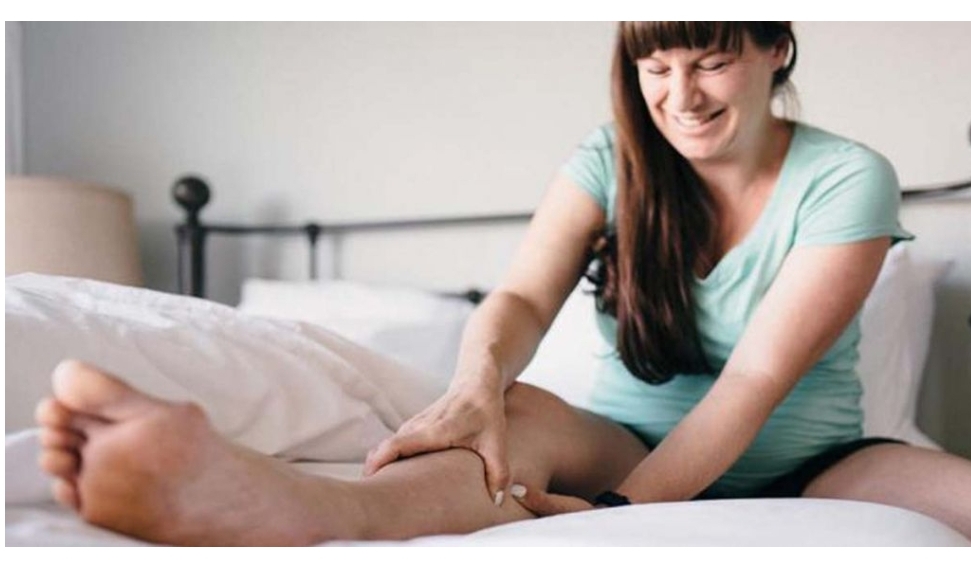Muscle or leg cramps at night, often referred to as nocturnal leg cramps, can be an uncomfortable and disruptive experience. These sudden and painful muscle contractions typically occur during sleep but can wake you up and leave you searching for relief. Understanding the causes and knowing how to alleviate them can help you enjoy a more restful night’s sleep. Here are eight common causes of nighttime muscle cramps and what you can do about them:
1. Dehydration
Dehydration is a leading cause of muscle cramps. When you don’t have enough fluids in your body, your muscles are more prone to cramping. To prevent this, stay well-hydrated throughout the day, and consider drinking a glass of water before bedtime.
2. Mineral Imbalances
Low levels of important minerals like potassium, calcium, and magnesium can trigger muscle cramps. Incorporate foods rich in these minerals into your diet, such as bananas (potassium), dairy products (calcium), and nuts/seeds (magnesium).
3. Overexertion or Fatigue
Excessive physical activity or muscle fatigue, especially during the day, can lead to nighttime muscle cramps. Give your muscles time to recover by practicing proper warm-up and cool-down routines after exercise.
4. Poor Blood Circulation
Conditions that affect blood circulation, like peripheral artery disease or sitting in an awkward position for too long, can cause muscle cramps. Regular exercise, leg elevation, and stretching can help improve circulation.
5. Medications
Certain medications, such as diuretics, statins, and asthma medications, can contribute to muscle cramps as a side effect. Consult your healthcare provider if you suspect your medications are causing cramps to discuss possible alternatives.
6. Foot Position During Sleep
Pointing your toes downward during sleep, especially if you sleep on your stomach, can increase the likelihood of leg cramps. Try sleeping on your back with your toes pointed upward or placing a pillow under your feet to keep them flexed.
7. Underlying Medical Conditions
Medical conditions like diabetes, nerve disorders, or kidney disease can lead to muscle cramps. Treating the underlying condition and following your healthcare provider’s recommendations can help alleviate cramps.
8. Pregnancy
Pregnant women often experience leg cramps, especially in the later stages of pregnancy. Gentle stretching exercises, prenatal massage, and staying well-hydrated can help reduce cramps during pregnancy.
What to Do When You Get a Nighttime Leg Cramp:
Stretch Gently: When a cramp strikes, carefully stretch the affected muscle. Slowly and gently flex your foot upward towards your head to alleviate the cramp.
Apply Heat or Cold: Applying a warm or cold compress to the cramped muscle can provide relief. Experiment to see which temperature works best for you.
Massage: Lightly massaging the cramped area can help relax the muscle and relieve tension.
Stay Hydrated: If dehydration is a suspected cause, drink a glass of water to rehydrate.
Practice Preventative Measures: To prevent future cramps, consider the causes mentioned above and make necessary lifestyle adjustments.



